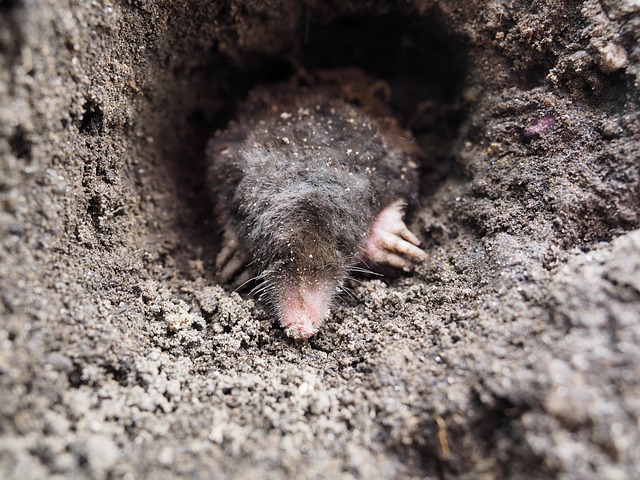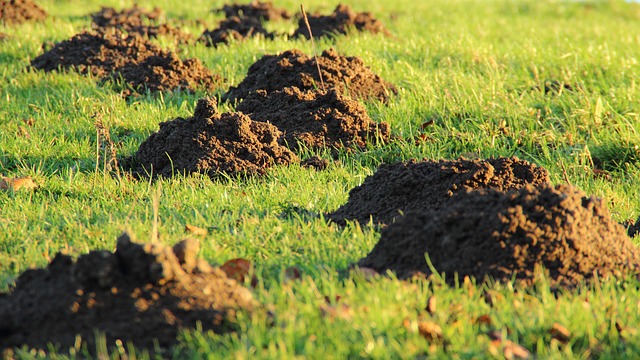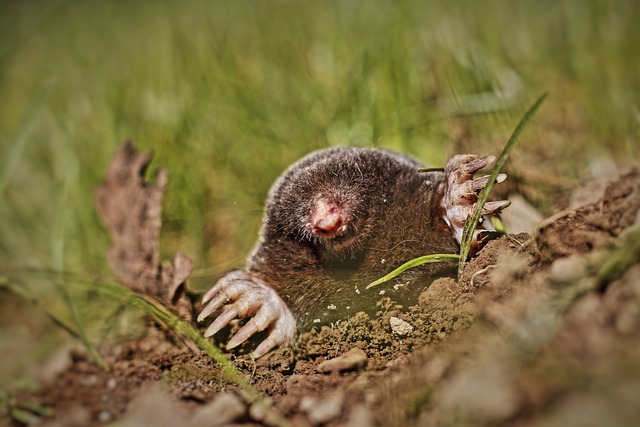Meet moles: small, sneaky, and oh-so destructive. Their tunneling habits wreak havoc on gardens and lawns, causing homeowners more than just a headache. But is there more to these critters than meets the eye?
Do moles carry diseases, too?
Curious to learn more about the hidden dangers moles pose in your yard? Let’s explore the risks and effective strategies for keeping your home mole-free.
Understanding Moles in Washington and Oregon
Moles have stout, cylindrical bodies, velvety fur, small eyes, and powerful forelimbs with shovel-like claws perfect for their underground lifestyle. These pests can tunnel through mounds of soil with ease!
To aid in their subterranean escapades, moles rely on specialized sensory organs like their sensitive snouts and whiskers. These features compensate for their poor eyesight, helping them navigate the labyrinthine tunnels that define their underground world.
Moles have a hearty appetite, mainly munching on earthworms and soil-dwelling insects. Their relentless digging and hunting help aerate the soil and keep insect populations in check. However, their tunneling activities can often lead to more harm than benefit, sometimes even attracting or increasing insect populations around your home.
Despite their solitary nature, moles are territorial creatures, fiercely defending their exclusive domains against intruders. While not aggressive towards humans, moles will assertively deter any mole encroaching upon their territory. However, they generally prefer to keep to themselves, avoiding interactions with humans and other creatures.
Moles mate once a year, usually in late winter or early spring. After a gestation period of about four weeks, a female mole gives birth to a litter, generally containing 3 to 5 pups, known as kits. These pests may form temporary social connections during the breeding season or when tending to their offspring.
In their search for suitable habitats, moles will occupy any area with conducive soil conditions for tunneling, like grasslands, woodlands, and gardens. While they thrive in moist, loamy soil, they can adapt to most environments. Despite this, rocky or compacted soil is not their preferred terrain, as it poses challenges to their digging capabilities.
Do Moles Carry Diseases?
While seemingly harmless, moles can seriously wreak havoc on your lawn. But what other harm can these pests cause? Are you at risk of diseases as they tunnel through your yard? Let’s delve deeper into the potential dangers posed by moles.

Potential Pathogens
Like many other small mammals, moles can host a range of pathogens, bacteria, viruses, and parasites. Common examples include Leptospira bacteria, tapeworms, roundworms, and tick-and-flea-borne diseases. These pests can even carry rabies, although mole-to-human transmission is very rare.
Interactions with Wildlife and Humans
While moles primarily dwell underground and rarely come into direct contact with humans, their activities can indirectly impact your health. For example, mole tunnels can provide harborage sites for disease-carrying mosquitoes or create future nesting sites for wasps.
Risk Mitigation
So, do moles carry disease? They do!
While the likelihood of disease transmission from moles to humans is generally low, you can take proactive steps to minimize your risk. These measures include:
- Wash your hard after interacting with soil
- Avoiding direct contact with moles or their tunnels
- Wearing gloves when working in the soil or gardening
- Relying on pest control methods to manage mole populations
Risks and Precations of Dealing with Mole Infestations
When you’re dealing with a mole problem, it’s essential to take a thoughtful approach. While moles aren’t typically a danger to humans, they can cause many headaches. Let’s talk about the risks of mole infestations and how we can help!

Damage to Property
Moles can create a mess with their digging, leaving behind ugly molehills and tunnels on the surface. Not only do these spoil the look of a garden or lawn, but they can also harm the plants themselves. The disturbance they cause to the soil structure can mess up plant roots, leading to weaker growth and less healthy plants.
Increased Pest Activity
Mole tunnels provide a habitat for various soil-dwelling insects and pests, including grubs, earthworms, and larvae. As a result, areas with high mole activity may experience increased populations of these pests, which can further damage vegetation.
Economic Costs
Dealing with mole infestations can hit homeowners in the wallet, with costs piling up for things like fixing the lawn, getting pest control services, and repairing any damage to the landscaping. Plus, if mole activity drags on, it means more time and money spent trying to keep them under control with ongoing maintenance and pest management.
Recommended Actions
Dealing with a mole invasion at home can be a real nuisance, but there are steps you can take to tackle it effectively:
a. Keep an Eye Out: Start by paying close attention to your yard. Look for signs that moles might be at work, like obvious molehills or the trails they leave on the surface. This simple step helps you gauge the size of the problem and gives you clues on how to handle it.
b. Experiment DIY Tactics: Take matters into your own hands and explore some DIY methods to deter moles from taking over your yard. Consider setting up physical barriers like underground fences or mesh around flower beds or vegetable gardens that are particularly vulnerable to mole activity. Alternatively, you could use natural repellents like castor oil-based products or plant certain plants that moles avoid, like daffodils or marigolds.
c. Call in the Pros if Needed: If you’re up against a full-blown mole invasion, it might be time to call in the experts. Professional pest control experts like us at Natura can swoop in, assess the situation, and devise a tailored attack plan. We have the tools and know-how to deal with the problem safely and efficiently, saving you the headache of trying to do it all yourself.
Turning to Natura Pest Control
Residents in the Vancouver-Portland Metro should turn to Natura Pest Control for peace of mind and effective solutions against moles! With our expert technicians and top-notch techniques, we’ll ensure your Washington or Oregon home is safe from these destructive pests.



